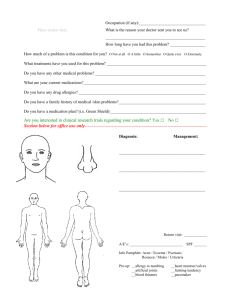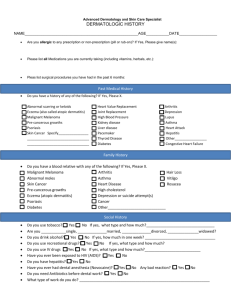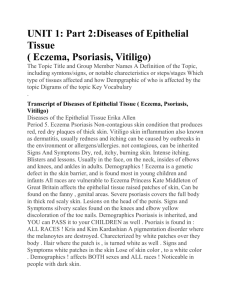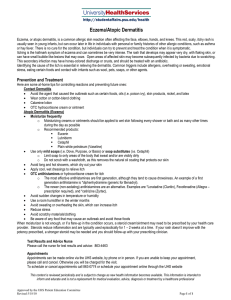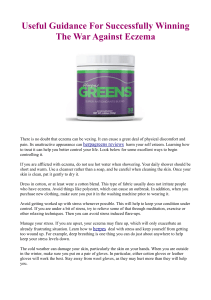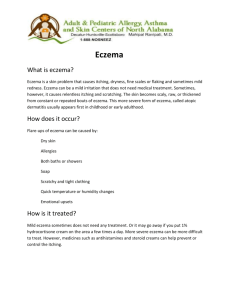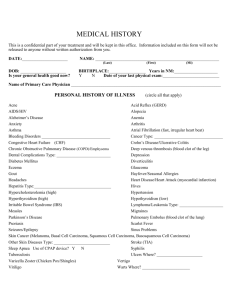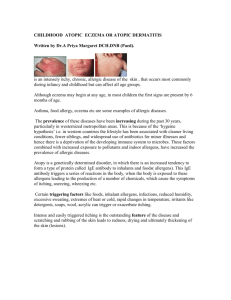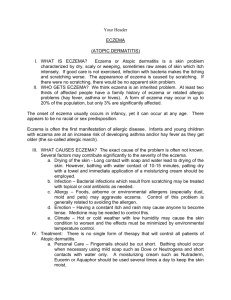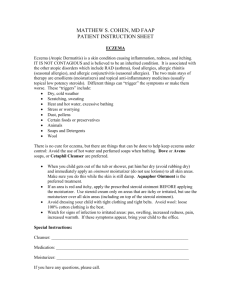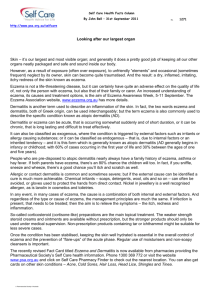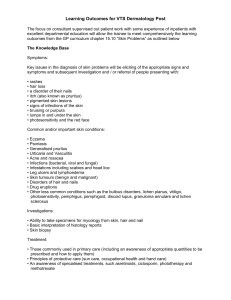1315 Taking care of skin - Pharmaceutical Society of Australia
advertisement
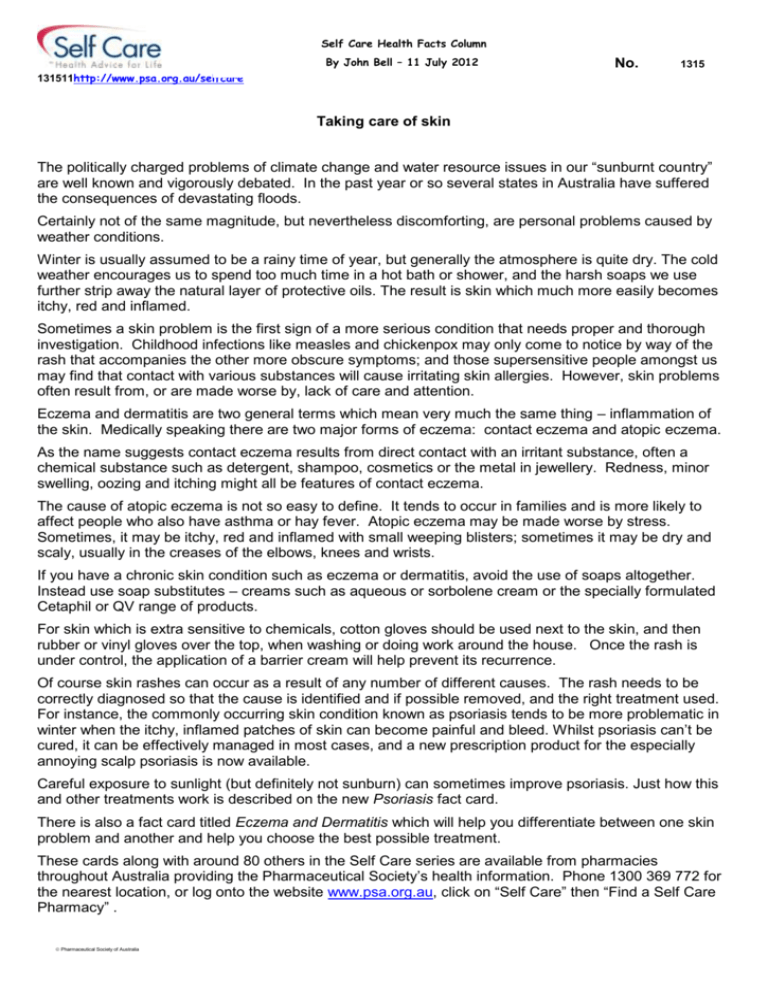
Self Care Health Facts Column By John Bell – 11 July 2012 No. 1315 131511http://www.psa.org.au/selfcare Taking care of skin The politically charged problems of climate change and water resource issues in our “sunburnt country” are well known and vigorously debated. In the past year or so several states in Australia have suffered the consequences of devastating floods. Certainly not of the same magnitude, but nevertheless discomforting, are personal problems caused by weather conditions. Winter is usually assumed to be a rainy time of year, but generally the atmosphere is quite dry. The cold weather encourages us to spend too much time in a hot bath or shower, and the harsh soaps we use further strip away the natural layer of protective oils. The result is skin which much more easily becomes itchy, red and inflamed. Sometimes a skin problem is the first sign of a more serious condition that needs proper and thorough investigation. Childhood infections like measles and chickenpox may only come to notice by way of the rash that accompanies the other more obscure symptoms; and those supersensitive people amongst us may find that contact with various substances will cause irritating skin allergies. However, skin problems often result from, or are made worse by, lack of care and attention. Eczema and dermatitis are two general terms which mean very much the same thing – inflammation of the skin. Medically speaking there are two major forms of eczema: contact eczema and atopic eczema. As the name suggests contact eczema results from direct contact with an irritant substance, often a chemical substance such as detergent, shampoo, cosmetics or the metal in jewellery. Redness, minor swelling, oozing and itching might all be features of contact eczema. The cause of atopic eczema is not so easy to define. It tends to occur in families and is more likely to affect people who also have asthma or hay fever. Atopic eczema may be made worse by stress. Sometimes, it may be itchy, red and inflamed with small weeping blisters; sometimes it may be dry and scaly, usually in the creases of the elbows, knees and wrists. If you have a chronic skin condition such as eczema or dermatitis, avoid the use of soaps altogether. Instead use soap substitutes – creams such as aqueous or sorbolene cream or the specially formulated Cetaphil or QV range of products. For skin which is extra sensitive to chemicals, cotton gloves should be used next to the skin, and then rubber or vinyl gloves over the top, when washing or doing work around the house. Once the rash is under control, the application of a barrier cream will help prevent its recurrence. Of course skin rashes can occur as a result of any number of different causes. The rash needs to be correctly diagnosed so that the cause is identified and if possible removed, and the right treatment used. For instance, the commonly occurring skin condition known as psoriasis tends to be more problematic in winter when the itchy, inflamed patches of skin can become painful and bleed. Whilst psoriasis can’t be cured, it can be effectively managed in most cases, and a new prescription product for the especially annoying scalp psoriasis is now available. Careful exposure to sunlight (but definitely not sunburn) can sometimes improve psoriasis. Just how this and other treatments work is described on the new Psoriasis fact card. There is also a fact card titled Eczema and Dermatitis which will help you differentiate between one skin problem and another and help you choose the best possible treatment. These cards along with around 80 others in the Self Care series are available from pharmacies throughout Australia providing the Pharmaceutical Society’s health information. Phone 1300 369 772 for the nearest location, or log onto the website www.psa.org.au, click on “Self Care” then “Find a Self Care Pharmacy” . Pharmaceutical Society of Australia
